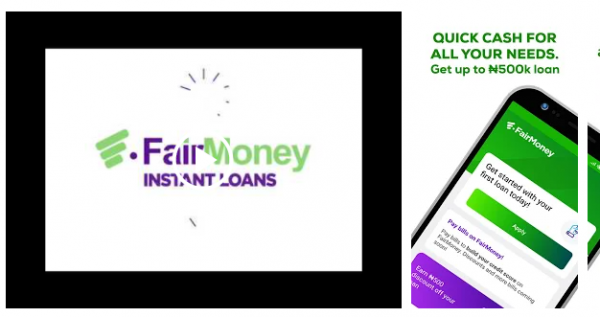Table of Contents
Best Loan Apps for Students in Nigeria in 2024
Figuring out the best loan apps for students in Nigeria could be a little bit challenging. This is because of the high-interest rates and short repayment periods that most of these loan apps have.
So, in this article, I will be telling you about the best loan apps in Nigeria for students, how to register with them, their interest rates, and repayment options.
See Also: How to save money as a teenager in Nigeria
Best Loan Apps for Students in Nigeria in 2024
- Migo
- Kuda
- Palmcredit
- FairMoney
- Carbon
- Access Bank PayDay Loan
- Aella Credit
- Kiakia
- Renmoney
- Lidya
- Specta
- Okash
- Branch
- Zenith Bank Eazy Loan
- Quickcheck
1. Migo
Migo is formerly known as Mines.io, which is a financial technology company founded in the United States. Most students in Nigeria use this loan app to source money for school fees and feeding. 
To register with Migo, you will need to download the app, and provide your personal information, including your name, phone number, and ID details. You might also need to link your bank account.
See Also: How to Earn Money Quickly as a Student
Migo has a minimal interest rate, which every student can cope with, though the interest rates on Migo app can change depending on the amount you want to borrow, which makes them highly competitive.
Migo app always displays the interest rate and repayment terms-conditions whenever you apply for a loan to enable you know interest rates based on the amount you are borrowing.
2. Kuda
Kuda is a digital bank that originated in Nigeria. As of now, Kuda has no physical branch, but serves as one of the best loan apps for students in Nigeria. 
To register with Kuda, you can download the app from your app store, sign up with your personal details, and complete the KYC (Know Your Customer) process by submitting identification documents.
Kuda offers overdraft opportunities with interest rates of 2.5% ranging from 1,000 to 200,000. This can change based on your usage and creditworthiness.
3. Palmcredit
Palmcredit is a loan app developed by Transnet Financial, a Chinese-owned fintech company that operates in several African countries, including Nigeria.
To register with Palmcredit, you need to download the app from play store, provide your personal information, and get the KYC process ready, which might include submitting identification documents such as NIN and voter’s card.
Palmcredit offers short-term loans with interest rates of 14%, ranging from 2,000 naira to 100,000 naira which ranges from competitive to relatively high, depending on the loan amount and repayment period.
4. FairMoney
FairMoney is a financial technology company that primarily operates in Nigeria and other African countries which is among the best loan apps for students in Nigeria. 
To register with FairMoney, you can download the app from your play store, sign up with your personal information, and complete the KYC process by providing identification documents and linking your bank account.
Sometimes, the interest rates on FairMoney loans are generally not the same, but they have an interest rate of 10%. You can borrow from 1000 naira to 500,000.
5. Carbon
Carbon, formerly known as Paylater, is a Nigerian-based fintech company.
To register with Carbon, download the app, sign up with your details, and complete the KYC process by submitting identification documents and connecting your bank account.
Carbon offers loans with interest rates of 5% that can vary based on the amount borrowed and the loan tenure, you can borrow from 1,500 naira to 300,000 from Carbon.
6. Access Bank PayDay Loan
Access bank payday loan is a product of Access bank and is also counted as one of the best loan apps for students in Nigeria. Access bank is one of the major banks in Nigeria.
To access the PayDay Loan from Access Bank, you need to be an existing customer of Access Bank. You can apply for the loan through the bank’s mobile app or online banking platform.
Interest rates for Access bank payday loans may not be the same, and it usually depends on your relationship with the bank and the terms of your loan.
It’s the duty of Access Bank to provide you with the specific interest rates and repayment conditions when you apply for the loan.
7. Aella Credit
Aella Credit is a fintech company that operates in Nigeria and other African countries.
To register with Aella Credit, you can download the app, provide your personal information, complete the KYC process by submitting identification documents, and linking your bank account.
Aella Credit offers loans with interest rates of 4%, from 2000 naira to 200,000 naira. These interest rates may not be the same, but they are based on the loan amount and repayment period. The app will display the specific interest rates and terms when you apply for a loan.
8. Kiakia
Kiakia is a Nigerian-based peer-to-peer lending and credit scoring platform which is regarded as one of the best loan apps for students in Nigeria.
To register with Kiakia, you can visit their website and sign up with your personal details. You’ll also need to complete the KYC process by providing identification documents.
Kiakia connects borrowers with individual lenders, so they have interest rates of 5.6% ranging from 2000 naira to 720,000 naira. Kiakia provides a platform for lenders and borrowers to negotiate loan terms.
9. Renmoney
Renmoney is a Nigerian-based microfinance bank. You can also apply for loans at their physical branches.
To register with Renmoney, you can visit their website, provide your personal information, and complete the KYC process by submitting identification documents.
Renmoney offers personal loans with interest rates of 2.8% ranging from 60,000 naira to 580,000 naira. This can change based on the loan amount and repayment tenure.
10. Lidya
Lidya is a financial technology company that was founded in Nigeria and serves as one of the best loan apps for students in Nigeria.
To register with Lidya, you can download the app, sign up with your personal information, complete the KYC process by submitting identification documents, and linking your bank account.
Lidya offers small and medium-sized business loans with interest rates of 3.5% ranging from 120,000 to 4.8,000,000 naira. This can change based on your creditworthiness, business profile, and the specific terms of the loan.
11. Specta
Specta is a product of Sterling Bank, a Nigerian financial institution. Sterling banks have branches all over Nigeria across different states.
To register with Specta, you can visit their website or use the mobile app, sign up with your personal details, and complete the KYC process. You can also apply for loans through Sterling Bank branches.
Specta offers personal and business loans with interest rates that change depending on the type of loan and other factors. The specific interest rates and terms are mainly provided during the loan application process.
12. Okash
Okash is a micro-lending platform operated by OPay which is one of the most popular loan apps for students in Nigeria. OPay is a Chinese-owned company that operates in several African countries including Nigeria.
To register with Okash, you can download the app, sign up with your personal information, complete the KYC process by submitting identification documents, and linking your bank account.
Okash offers short-term loans with interest rates that can vary based on the loan amount and repayment period. The app always displays the specific interest rates and terms-conditions when you apply for a loan.
13. Branch
Branch is a fintech company that operates in multiple countries, including Nigeria and Kenya.
To register with Branch, you can download the app, sign up with your personal details, and complete the KYC process, which may involve submitting identification documents and allowing the app access to your smartphone data for credit scoring.
Branch offers loans with interest rates that can change based on your creditworthiness and other factors.
14. Zenith Bank Eazy Loan
Zenith Bank is a well-established Nigerian financial institution. Zenith Bank Eazy Loan is a digital loan product offered by Zenith Bank that is one of the best loan apps for students in Nigeria. You may like to read loan apps to borrow money quickly in Nigeria.
To register for Zenith Bank eazy loan, you need to be an existing customer of Zenith Bank. You can apply for the loan through the bank’s mobile app or online banking platform.
The interest rates for Zenith Bank eazy loans are different depending on your relationship with the bank and the terms of your loan. Zenith Bank will provide you with the specific interest rates and repayment conditions when you apply for the loan in their bank.
15. Quickcheck
Quickcheck is a Nigerian-based financial technology company that offers loans and other financial services.
To register with Quickcheck, you can download the app, sign up with your personal information, complete the KYC process by providing identification documents, and linking your bank account or providing other financial information.
Quickcheck offers personal loans with 1% daily rates of interest ranging from 2000 naira to 500,000 naira. This may be the same because of different loan amounts and repayment periods.
Advantages Of Loan Apps for Students
Loan apps have several important benefits for students which include:
- Loan apps provide students with quick access to funds, helping them cover various educational expenses like tuition fees, textbooks, accommodation, and other daily living costs.
- Loan apps are convenient and provide a fast application and approval process. Students can apply for loans from the comfort of their rooms or homes without the need for lengthy paperwork or physical visits to a bank.
- Many loan apps offer flexible repayment terms. Students can choose loan amounts and repayment periods that suit their financial situation.
- Responsible use of loan apps can help students establish and build their credit history. Timely repayment of loans can improve their credit scores, which can be beneficial for future financial endeavors.
- Loan apps can serve as a financial safety net for students in case of emergencies, such as medical expenses, unexpected travel, or car repairs. Having access to quick loans can help students handle unforeseen circumstances.
Disadvantages of Loan Apps for Students in Nigeria
Here are some of the disadvantages to know about if you want to get a student loan in Nigeria:
- Some loan apps, especially those that offer to borrowers with limited credit histories, may charge high interest rates, resulting in costly loans.
- Easy access to loan apps can lead to overspending, the cycle of borrowing to repay previous loans and the accumulation of debt, which can be challenging to repay in the future.
- Failing to repay loans on time can result in late fees, collection actions, and damage to credit scores. Defaulting on loans can have long-term financial consequences.
- The Nigerian financial sector may have varying degrees of regulation for loan apps. Some apps may not adhere to responsible lending practices, potentially putting borrowers at risk.
- Loan apps may request access to personal and financial information, raising privacy and security concerns if not handled properly.
Repayment Options for Loan Apps for Students in Nigeria
Repayment options for loan apps for students in Nigeria may not be the same depending on the specific app and the terms they offer. Therefore, here are some common repayment options:
1. Direct Debit
Many loan apps in Nigeria allow borrowers to set up direct debit arrangements. This means that the loan repayment amount is automatically deducted from the borrower’s bank account on the agreed-upon due date. This option ensures that repayments are made on time, reducing the risk of late fees.
2. Bank Transfer
Some loan apps provide bank account details to which borrowers can manually transfer the repayment amount. It’s essential to ensure that the reference or account number is correctly entered to avoid any payment issues.
3. Debit Card Payments
Certain loan apps allow borrowers to make loan repayments using their debit cards. This can be a convenient option for students who may not want to set up a direct debit.
4. Salary Deduction
In some cases, employed students may have the option to arrange for loan repayments to be deducted directly from their salaries. This method can ensure timely payments and is often used for larger loans.
5. Mobile Money
Some loan apps may accept repayments via mobile money platforms such as M-Pesa or other similar services. This can be a practical option for students who use mobile money for their transactions.
Conclusion
It’s true that loan apps can provide essential support, but it’s very important for students to use them responsibly and be mindful of interest rates and repayment terms to avoid falling into unending debt.
As a student, do not borrow money anyhow, only borrow when there is a need for it, make timely repayments, and endeavor to have some part-time jobs that will help you in repayment.
It is also nice to check other funding sources, such as scholarships and grants, which can help you stop depending on loans before you could pay your school fees.
Lucy Ifunanya is a versatile and skilled content writer, passionate about writing articles that resonate with her readers. With a creative mindset, she brings a unique blend of informative writing and SEO-driven methods to her articles.









